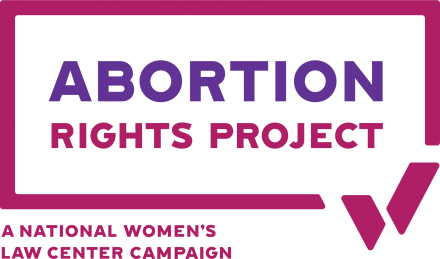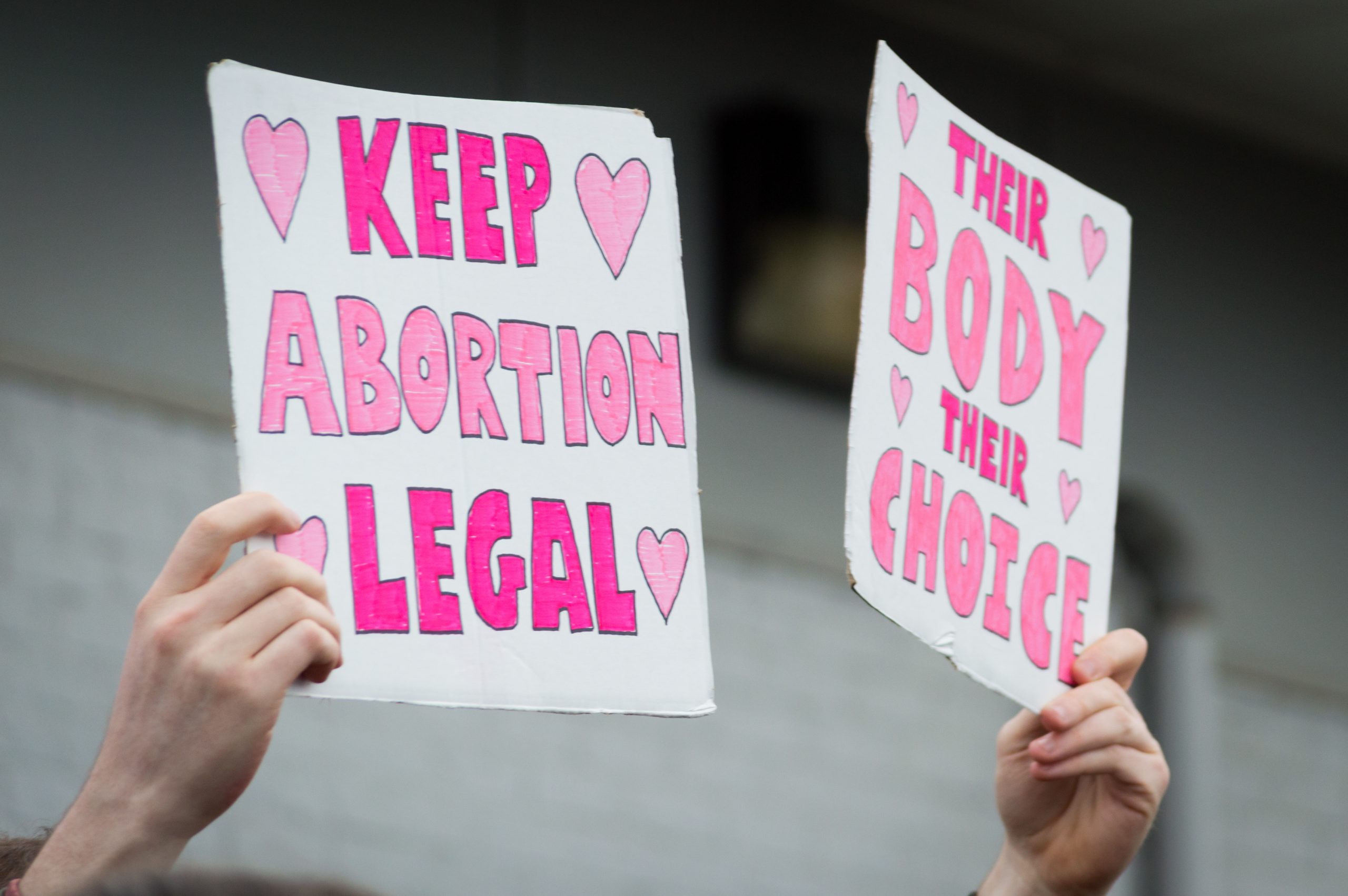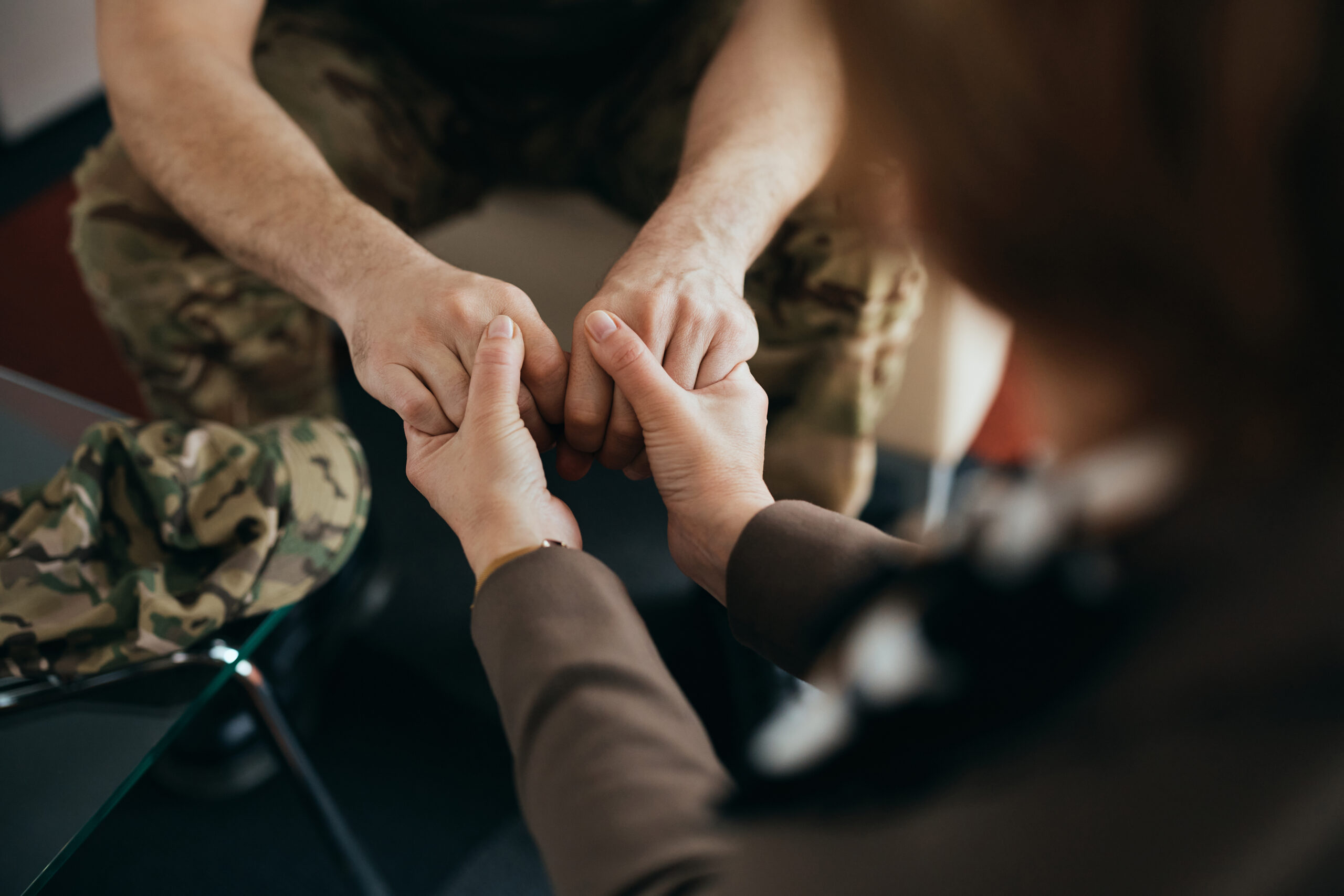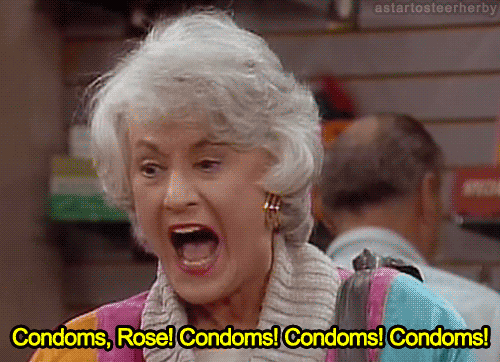Abortion rights, women of color, and LGBTQI+ people are under attack. Pledge to join us in fighting for gender justice.
Abortion Rights, Our Future: Gen Z Talks!
 Last week, we partnered with Advocates For Youth to talk with some Generation Z advocates about the future of abortion access. If you missed that conversation, not to worry! Here are some of the best moments from our discussion with Anna (24), Moira (22), and Gina (21).
Last week, we partnered with Advocates For Youth to talk with some Generation Z advocates about the future of abortion access. If you missed that conversation, not to worry! Here are some of the best moments from our discussion with Anna (24), Moira (22), and Gina (21).
This interview has been edited for length and clarity. The full version can be found here.
JH: What’s one way that abortion has affected your life?
Anna: I got involved with reproductive rights advocacy groups in college, as I grew up in a super Catholic house and went to a private Catholic school, so those were just things I didn’t know about. I, of course, know people who have gotten abortions, and I wrote my undergrad thesis on abortion, so it’s something I’m passionate about.
Moira: Growing up in a very Catholic culture—both in the Philippines and the United States—I was able to see the drastic difference in what it’s like for different people to have access to abortion, and more broadly, reproductive justice.
Gina: I am also from a very Catholic family, and the cultural mindset between Vietnamese people at home and the culture of abortion around here [in DC] is different. So, it’s really rewarding to be introduced into the perspective of abortion not being a moral issue, so much as just healthcare.
RT: Can everyone say a little more about what abortion access means to them?
Anna: Access is more than just having the legal right to have an abortion. It’s not just that Roe v. Wade stands, it’s things like the Hyde Amendment, which prohibit people on Medicaid to have federally funded abortions—that’s a big problem for people who can’t afford it. It’s not just the legal right, but the social support in making that decision.
Moira: I really agree. I always think about the different abortion restrictions being put in place, which are not quite bans, but are still pretending to be in the interest of the pregnant person. I think what access looks like is to have standards in place so that a person would not have to go through those coercive situations.
Gina: Unfettered abortion access means is shifting this language around abortion into something that’s just a health choice we make, like the kind of painkiller you buy. It shouldn’t be as controversial as it is.
JH: Do you all feel that there is a stigma around abortion, or abortion advocacy for people our age? What does that look like?
Gina: The stigma that I’ve seen manifests in how abortion is talked about—the assumptions around why people get abortions. It’s the idea that particularly women will go around, have unprotected sex, and get abortions every three days or something. This is the story that people seem to have associated with abortion, when that just isn’t the case. It’s already hard to access, especially for low-income people and people of color.
Anna: It’s less people our age having negative reactions to abortion, but rather more of a cultural and social understanding. We know we couldn’t talk to our parents, our mentors, or anyone older than us about it; it’s something you had to figure out with friends. I have a couple of friends who have gotten abortions, and we had to lean on each other for support. It’s the cultural stigma.
RT: What do you think is the primary concern of people our age in response to the threats to abortion we are seeing in states like Alabama, Georgia, and Missouri?
Gina: One conversation I’ve been hearing is the way peers must shift their needs for birth control. I remember after Kavanaugh was confirmed to the Supreme Court, I knew a lot of people who were like, “Oh, I have to go and get an IUD now, because I can’t afford to get pregnant.” There was a lot of talk around having to ensure more stringent safeguards against pregnancy, because getting pregnant at 19, 20, 21 is not something we can afford—financially or mentally.
JH: The response of “I have to get an IUD” has been happening since Trump got elected in 2016. There’s been a big craze for IUDs out of fear.
Moira: People have even been stockpiling their birth control.
JH: So obviously we have not grown up in a world without Roe v. Wade, but for the last nine years, the attacks on abortion access has been consistent. Is there something about the recent attacks that have made the threat to abortion seem more serious?
Anna: It’s always been serious, but right now we are in the political moment of a conservative backlash. After having President Obama for two terms, people are really emboldened to undo everything he did, especially in healthcare. With President Trump, his judicial nominees, and conservative state politicians, it’s scary because we could so easily backslide.
Moira: When I was studying abortion law, I thought about the fact that when restrictions are being made, since it is not an outright ban, people are not always as mobilized as they should be. Restrictions are something I think we don’t mobilize enough around as a movement, and that’s going to be what will eliminate safe abortion for most people. Roe v. Wade might never be overturned, but effectively, in many states, people already don’t have access to abortion.
RT: Looking at yourselves, how would the loss of abortion access affect your personal, financial, and educational futures?
Anna: This hits home for me. I am trying to get pregnant in the next three to four years, but I know I’m not financially, mentally, or at all ready to have a kid right now. But I’m able to plan out and have those personal choices; that’s really reassuring, so I can get to that goal eventually. It would be really demoralizing to have to take that risk into account, and potentially risk not being the parent I want to be.
Gina: I want to go to law school and I want to become a lawyer. That’s already hard for a woman, a person of color, a first-generation college student, a child of refugees… I already have so many things stacked against me in what is already a conservative institution, which privileges people that have a multi-generational understanding of how the college and law school systems work. I already don’t have that, so to add pregnancy on top of that, and all the bodily and mental health changes that come with that, I don’t know what my life or my future would look like, especially if I wasn’t able to have an abortion.
Moira: I really agree with that, and as a woman, I’ve been socialized my whole life in repeatedly being told I don’t own my body, my sexual health, or my choices. Having that be reintroduced to me when I have already gone through so much trauma around that is going to be bad. But for the people who don’t have the vocabulary to have been able to work through that, it is going to be disastrous. The effects are not going to be undone quickly if abortion were made illegal.
JH: Would you be making changes in your life if the option of abortion was no longer available for you?
Anna: Definitely. It would affect the type of birth control I’m on, but also, the most effective types of birth control methods don’t work for me due to a medical condition. So, it would most likely just really affect my private life, which is sad. I wouldn’t be able to do what I want.
Gina: I would probably go and get an IUD, but the thing that worries me is if it doesn’t work for me. Birth control can be so personal and finicky; if a birth control really affects your body negatively but you still must take it due to its effectiveness, that lack of choice between the methods would be hard.
Moira: Having been a resource to my community about their different reproductive choices, I would not be as free to talk to them about what they could be doing. I would not be able to, in good faith, let them know this resource will always be available to them, because it wouldn’t be anymore.
RT: What can our generation be doing to build up a better world for abortion access in the future?
Moira: It goes hand in hand with supporting people for all their parenting choices, not just being able to access abortion. Encouraging people to parent when they have the desire to, educating yourself, educating your community members on the different resources that they can have surrounding all outcomes of pregnancy. An avenue that needs to be talked about more is promoting self-managed abortions, especially in earlier stages of pregnancy when people can take medication abortion. We need to create a community around disseminating those resources.
Gina: I totally agree with that, and we also need to be looking to comprehensive sex ed. Being able to promote a culture among kids and young people that what is happening with their bodies is normal—if you have sex, that’s normal, if you don’t, that’s normal. If you do, here’s what happens, here’s what can happen, and here are what your choices are. Giving kids that language and the choice to have that mindset, rather than researching things on your own, with your friends, in secret and hidden from your parents.
Anna: Something that’s been inspiring was the culmination of the protests in Puerto Rico, and how they were able to get their mayor to resign. Being in the movement for a short time, you can already feel jaded about the political system and the ability to organize. But I think examples like that show that if you have a motivated core group of people, you can get stuff done. I think more of that needs to happen, and we need to stop putting politicians, laws, and people older than us on a pedestal that we can’t touch. There’s a lot more of us than them, so we have an impact.
JH: I’m hearing a desire for a cultural shift towards reproductive justice. What would be the first step to achieving that vision?
Moira: Talking to young people. Young people are so crucial because my generation has displayed unprecedented empathy, and I think that’s something we can capitalize on. This is what personal autonomy is about: the care for other people, and respecting that their decisions are the best for them.
Gina: It would really help if we, in sex education settings, heard from people who had abortions. The normal, everyday stories of why people get abortions helps it to not be so scary and “hush hush”.
RT: We know that the anti-choice narrative isn’t just about abortion–it’s about sex and autonomy. If you’re just starting at the baseline with young people by saying, “You have autonomy and it’s okay to have sex,” all the things that grow from that are, “it’s okay to have an abortion,” “it’s okay to make the decision that’s right for you.” You’re starting at that baseline understanding that you’re a person, you have rights, other people must respect you. It starts at that learning stage.
RT: What does your ideal future look like? Are you hopeful for the future of abortion access?
Anna: It’s a scary time, but I still have hope we will get to a place where everyone has access to any reproductive choice they want to make. I feel like healthcare is a right, and healthcare should be free. I just worry it won’t come in time for me, or even my 15-year-old brother, and I’ll have to make some hard choices. I may not get to see the future we are building.
Moira: What we do right now is so crucial. There’s a lot of impetus on us to unite and forge the path forward to ensure abortion access. I can’t say which way it will go, because I have been disappointed by the courts and legislation so many times, and it’s going to be on us to ensure that doesn’t happen again.
Gina: I’m thinking about how healthcare as a right looks for abortion, and reproduction in general. My ideal world is one where all people have the support to make the reproductive choices they want – people no longer feel the need to explain, “my life was in danger and that’s why I got an abortion.” People can just make the decision that’s best for them without having to explain.
JH: What do you think those older than us can be doing to support us in having a future where nationwide, safe, legal abortion is accessible for everyone?
Anna: Even if our parents don’t fully agree with our politics, they need to see that it’s not going to affect them as much as it will us. They need to try to listen, and we as young people need to try to have those hard conversations with our parents and grandparents, because they know us, and see us as full humans. They might listen.
Gina: It’s so hard when your families are religious, and people of color, and come from countries with specific cultural upbringings. It’s hard to push back against, because how do I have this conversation about policy with you, but also honor your—our—cultural upbringing? I agree that you can say, “Hey, I know you don’t like it, but you love me. And what if I were in this situation?” That way they can understand the choices our age group has to make. I know this kind of relationship isn’t shared by everyone, but if you have that connection with your parents, you can build on that to convince them.
Anna: I think best practice, if you’re over the age of 30, just call a youth.
If you’d like to learn more about the National Women’s Law Center’s reproductive rights work, be sure to check out our Abortion Rights Project. To hear more about abortion access from Advocates For Youth, get involved in their 1 in 3 campaign, or head to their website to learn more.





